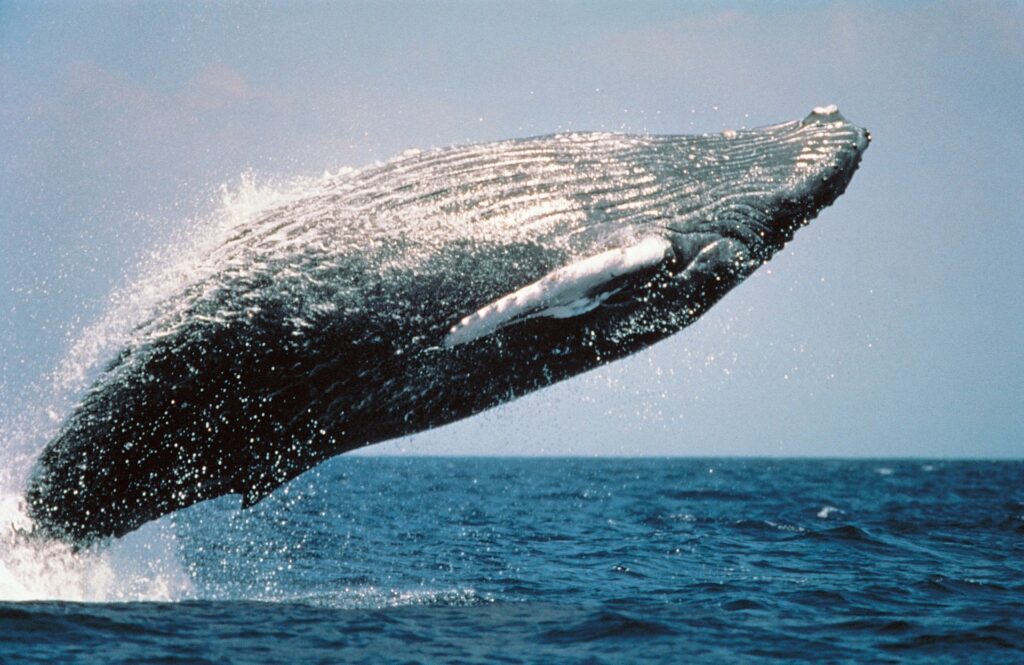Whales are giants of the ocean not just in size, but in their ecological roles and complex behaviors. They shape ecosystems through feeding, migrations, and even nutrient cycling, yet at the same time they are deeply vulnerable to human-driven change. In recent years, scientific studies have revealed how whales navigate their vast environment, communicate socially, and respond to climate-driven shifts in ocean conditions.
One striking discovery comes from research on blue whale migrations in the North Pacific. Long-term tracking shows that blue whales rely on memory of historical environmental conditions to decide where and when to travel. Rather than responding directly to the immediate bloom of phytoplankton, which fuels the krill populations they feed on, they align their migrations with the average seasonal timing of these blooms over past decades. This strategy is efficient in a stable environment, but it becomes risky under climate change where shifting ocean temperatures alter the timing of productivity. If the whales arrive when prey is no longer abundant, it could reduce foraging success and ultimately survival (Abrahms et al., 2019).
Other whales species are also showing altered patterns in response to warming oceans. In Cape Cod Bay, a key habitat for endangered North Atlantic whales, along with humpbacks and fin whales, researchers found that the peak timing of whale presence has shifted by nearly three weeks later than in the 1990s. This delay tracks changes in the seasonal onset of spring plankton blooms. While it demonstrates the whales’ ability to adjust, it also complicates conservation; protection measures designed for earlier windows may now fail to overlap with critical periods when whales are feeding or migrating (Jdb et al., 2023).
Equally fascinating is how whales communicate. Humpback whales are famous for their long, intricate songs produced by males during the breeding season. These songs are not static: they are socially learned and transmitted across populations, evolving in ways that show remarkable parallels to human cultural transmission. Recent statistical analyses show that humpback whale songs follow structural patterns similar to human language, with repeated elements forming themes and distributions that resemble linguistic rules (Garland et al., 2022). Beyond humpbacks, sperm whales use short click sequences called codas to coordinate socially. New automated methods for detecting and categorizing codas reveal synchronization among individuals in both content and timing, suggesting a robust communication system that persists even under noisy ocean conditions (Gubnitsky et al., 2024).
Together, these findings portray whales as highly intelligent, socially complex, and ecologically essential. But they also highlight vulnerabilities. Memory-based migration strategies can break down under rapid climate shifts. Changes in seasonal timing may leave whales exposed to threats from shipping or fishing gear. Communication so vital for social cohesion, is at risks of disruption from rising ocean noise caused by human activity. Understanding these dynamics is crucial not only for whale conservation but also for maintaining the health of ocean ecosystems that whales help sustain.

Humpback whale (Megaptera novaengliae) breaching. Image credit: Wanetta Ayers / Public Domain.
References:
Abrahms, B., Hazen, E. L., Aikens, E. O., Savoca, M. S., Goldbogen, J. A., Bograd, S. J., Jacox, M. G., Irvine, L. M., Palacios, D. M., & Mate, B. R. (2019). Memory and resource tracking drive blue whale migrations. Proceedings of the National Academy of Sciences, 116(12), 5582–5587. https://doi.org/10.1073/pnas.1819031116
Arnon, I., Kirby, S., Allen, J. A., Garrigue, C., Carroll, E. L., & Garland, E. C. (2025). Whale song shows language-like statistical structure. Science, 387(6734), 649–653. https://doi.org/10.1126/science.adq7055
Gubnitsky, G., Mevorach, Y., Gero, S., Gruber, D. F., & Diamant, R. (2025). Automatic detection and annotation of eastern Caribbean sperm whale codas. Scientific Reports, 15(1). https://doi.org/10.1038/s41598-025-97009-z
Jpd. (2023, September 13). New study shows climate change impacts on whale habitat use – New England Aquarium. New England Aquarium. https://www.neaq.org/new-study-shows-climate-change-impacts-on-whale-habitat-use/